Importance of a Marketing Plan
A marketing plan is one of the primary components of a comprehensive business plan. It’s the blueprint for identifying and reaching your target audience and converting them to customers. This is how you are going to get your customers to purchase enough of your product or service to make your business profitable. In this blog we discuss the importance of a marketing plan. There are three major components when developing a marketing plan that each answer their own series of important questions:

Market Research & Analysis
Identify your competition and their strengths and weaknesses. Why would people want to buy your product? Who are your competitors and why is your product better?
Let’s say your idea is to open a doughnut shop with your Great-Great-Grandmother’s secret doughnut recipe in your small town. There’s already Krispy Kreme, Dunkin’ Donuts and Honey Dew Donuts, so you may have a saturated market on your hands. However, surveying the local community might reveal that they would prefer to support a local business with a family recipe over a national chain. This differentiates you.
As part of developing a marketing plan, accurate and thorough market research can identify potential risks and challenges that your business may face. By anticipating these in advance, you can develop contingency plans and strategies to mitigate their impact. This proactive approach increases your chances of success and helps build a sustainable, resilient business.
Pricing Your Product or Service
How much can you charge? Do you offer a premium product or service for a premium price, or a lower cost alternative to your competitors? What is the appropriate price your product or service to cover your expenses, turn a profit, and be competitive?
Analyzing the market and understanding customer perceptions helps determine a competitive and profitable pricing strategy. This plays a crucial role in business planning and forecasting. Understanding market trends and demand patterns allows for accurate sales and revenue projections, and growth. This information is invaluable if seeking funding from investors or applying for loans. It demonstrates that you have done your due diligence and increases your chances of securing investors.
Marketing Strategy
How will you communicate why you’re different/better than the competition, and get customers to buy from you? What type of image do you want to project? What will branding and/or product packaging look like? Which types of advertising will you do to reach your target audience, and with what frequency?
The marketing plan usually includes a calendar that ties marketing and sales activities to specific operational events. For example, an advertising campaign may begin months before a new product or service is ready to be sold. As this date approaches, the ad campaign would be stepped up. Once the new product hits the market, additional advertising is used to support specific sales objectives. By understanding your target audience, you can then create marketing campaigns that connect with exactly who you have developed your product or service for.
Summary
In summary, developing a marketing plan is a vital component of your overall business plan before starting your own business. It provides valuable insights into the market, customers, and competition, minimizing the risk of failure. Thorough research allows you to develop effective marketing strategies to ensure success.
It is important to note that market research is an ongoing process. Even after starting your business, you should continue to monitor the market, analyze customer feedback, and stay up to date on industry trends. This way you can adapt to changing market conditions, identify new opportunities, and stay ahead of the competition by pivoting your marketing strategy.
Red Oak Coworking Office Suites at 409 Elm Street in Manchester NH are luxury lifestyle office suites, many with floor to ceiling or oversized windows, where you can be successful and productive. Located in the heart of New Hampshire’s largest city, this location offers office suites, Team Suites, conference rooms and dedicated desks. Amenities here include a state-of-the-art fitness center, yoga studio, shared kitchen, business center, off-street parking with available EV charging stations, and a reception area with greeter.
Also available is our 66 Hanover Street location downtown, which offers a variety of workspaces ranging from private or shared offices to open space coworking desks with parking nearby. Both locations have kitchen space, free coffee, tea and filtered water, free utilities and WiFi, and janitorial services. Lounge areas and conference rooms are also available. Contact Red Oak Coworking for more information on these two great swing space options.

